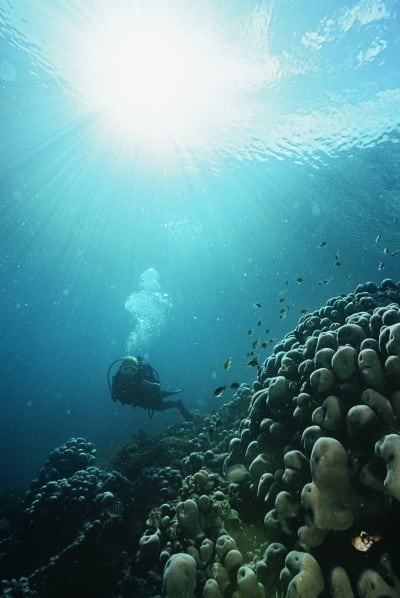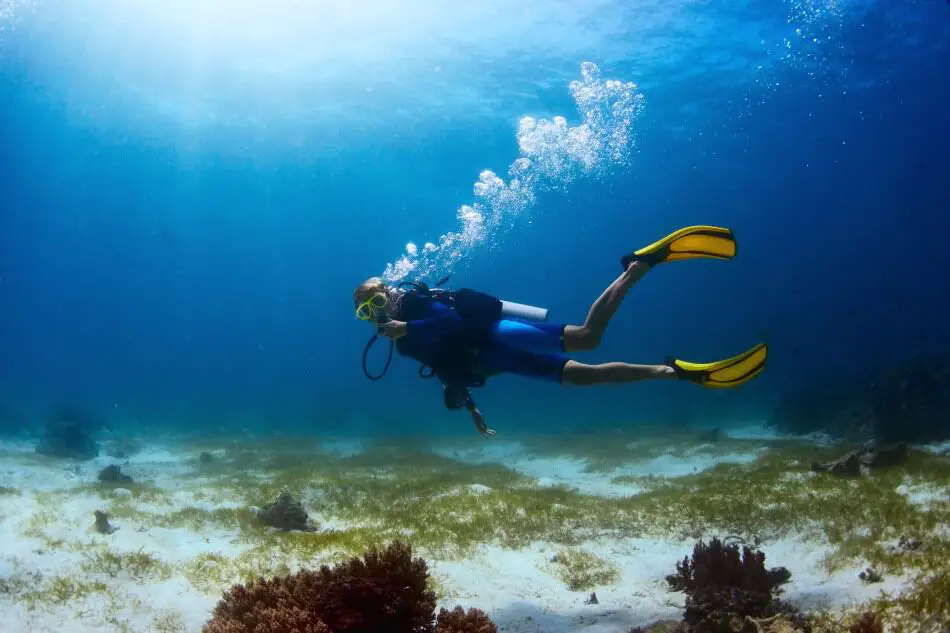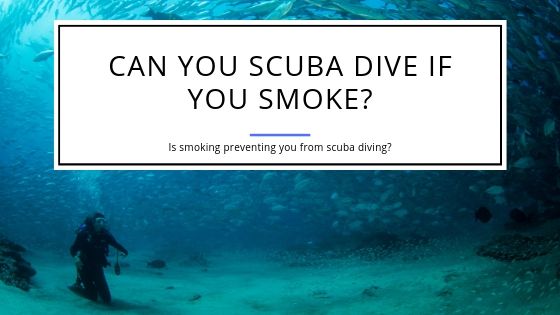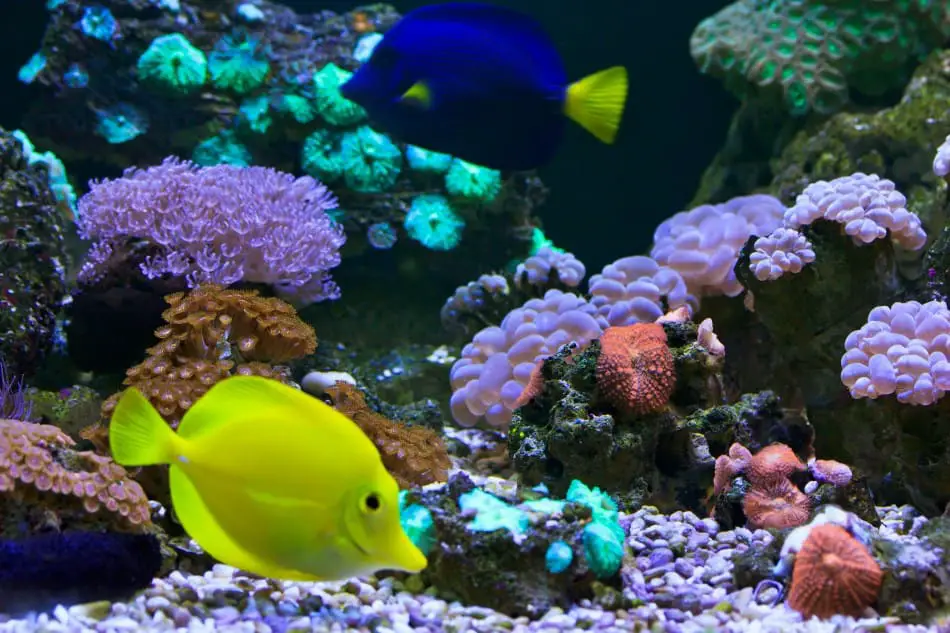Can You Scuba Dive if You Smoke?
It’s no secret that smoking is bad for your health. This article aims to discuss the limitations if any people who smoke may face if they scuba dive. Prolonged smoking reduces a person’s lung capacity and they are likely to be at a greater risk of drowning as compared to the average, non-smoking diver. It’s difficult to quit smoking, but if you’re planning on taking up scuba diving or are already a diver, it’s a good idea to be aware of the risks involved.
Can you scuba dive if you smoke? Yes, you can. However, there are certain risks. Your lung capacity is impacted by smoking and you have various risk factors when diving. Always consult a medical professional first if you smoke and want to dive.
Health Concerns for Smokers
Smoking affects your entire body. Chronic smoking can lead to problems like strokes, gum infections, lung and heart disease, hip fractures, ruptured and hardened arteries. They can also lead to life-threatening illnesses like lung, neck, stomach, head, blood and bone cancer.
While these are some of the more serious effects of smoking, there are also some side effects that even affect smokers who don’t smoke frequently. These include: chronic coughs, high mucus production, and poor physical performance.
Excessive smoking can also cause airway hyper responsiveness (AHR), which is characterized by increased sensitivity of airways because of constricted breathing capacity. It tightens the airways in a person’s body, and especially during scuba diving, the compressed air inhalation can constrict a diver’s breathing. In fact, research suggests that smokers are at a greater risk of running out of breath underwater than asthma patients.
When performing activities that require a lot of physical effort, such as scuba diving, your body requires a greater amount of oxygen. Smokers can’t absorb the same amount of oxygen as a non-smoker due to their decreased lung capacity, which makes it difficult for them to handle high-pressure situations, such as surviving underwater.
Some smokers also fall victim to chronic obstructive lung diseases and the thinning of blood vessels. The narrow blood vessels can’t wash out all the compressed gas that builds up in a diver’s body, making them susceptible to decompression sickness.
Is Hookah Diving the same as scuba diving? What makes a Hookah dive system?
Diving Concerns for Smokers
The heart and lung functions help a person cope with physically stressful situations. They are also responsible for helping the body dispel unwanted or excess gases.
Smokers’ bodies are unable to drain all the excess gases when they’re underwater, making them more prone to decompression sickness. Decompression sickness is characterized by the buildup of nitrogen bubbles in the body, which may burst and cause joint pains. Other risks for smokers who scuba dive include:
- Bronchoconstriction, which is characterized by tightening of the lung airways and causes shortness of breath, coughing and dry heaving.
- Lung barotrauma, which means that your lungs get damaged because of excess pressure on the lung airways. It is extremely dangerous as it may lead to cardiac arrest and increase the risk of drowning for divers who smoke.
- Dependency on cigarettes: long-term smokers crave nicotine and are likely to get restless if their cravings aren’t satisfied. Depending on the intensity of the habit, divers may start craving cigarettes just a few feet into the water.
- Increased blood pressure: the extra effort divers have to put in to sustain their breath underwater can heighten their blood pressure, which can even lead to heart attacks.
- Acid Reflux: not only does the burning sensation make your entire dive an uncomfortable experience, but it can also be dangerous since you’re so busy trying to ease the pain, you might not notice where you’re going.
- Panic attacks: smokers who dive are prone to suffering from panic attacks even at shallow depths. This quite obviously increases their risk of drowning.
- Transient Ischemic Attacks: neurological malfunction, which leads to restricted blood flow to the spinal cord, retina and brain. It can lead to physical weakness, temporary loss of vision and a numb sensation, which is particularly dangerous underwater due to the already compromised breathing conditions.
Physical Restrictions for Smokers
Smokers are not as physically fit as non-smokers and are more likely to experience respiratory problems if they exert extra effort during exercise and other physical activities. Due to decreased lung capacity, they are likely to get tired much faster and may not be able to stay underwater for too long.
The risk of decompression sickness increases as a person ages. This risk is greater and arrives faster for smokers.
Movement of Gases in a Diver’s Body
Smokers have a high level of carbon monoxide absorbed in their hemoglobin, which increases the amount of acid in the body, making it prone to acid reflux and being unable to exercise or perform strenuous physical activities for long periods of time.
Due to the high carbon monoxide levels in the hemoglobin, smokers’ blood contains less oxygen and causes them to have a higher red blood cell count. Release of excess gas becomes difficult for the body, putting the diver at risk of decompression sickness.

The Good News
The recovery time for people who quit smoking depends on the time period and intensity of their smoking habits. Over time, the health problems and risks decrease, and in some cases completely disappear. In fact, smokers in the recovery phase can make use of dive tables and scuba dive comfortably.
Dealing with Withdrawal
For divers in the withdrawal stage, they are likely to experience problems like bloating and emotional distress. Smokers are likely to burn more calories. When they quit, they might see an increase in their weight due to reduced levels of calories being burnt.
They may also replace the nicotine cravings with excess food and drink, which can also cause weight gain. Taking up exercise can help ease the emotional and physical side effects of quitting. In fact, scuba diving can also be good for them, both in terms of providing proper exercise and a way for them to calm their nerves.
For those experiencing high levels of discomfort due to quitting, they can consult their doctor and temporarily make use of medicationfor relief. This stage might be difficult, but is especially important for those who are serious about their interest in deep diving.
Taking Precautionary Measures
For smokers who still wish to dive, it is ideal for them to undergo health exams and find out from a medical practitioner whether they’re fit to dive or not.
They should also be accompanied by a dive buddy in case of emergencies like panic attacks and a shortness of breath where they may need to ascend to the surface immediately. They should also avoid deep diving since the deeper you go, the greater the water pressure and risk of decompression sickness.
Since chronic smokers have a lower lung capacity, they are more likely to experience breathing inhibition and buildup of gas bubbles in the water as compared to non-smokers. Decompression sickness generally only leads to joint pains but in the worst case scenario, it can even lead to drowning.

The Verdict
In short, people who smoke can scuba dive. In fact, the side effects and problems discussed above refer to frequent and chain smokers and are not directed towards people who may smoke a cigarette once or twice a year.
There are also many diving instructors and pro divers who smoke. In such cases, it is best for them to practice conservative forms of deep diving. This includes making decompression stops before the depths recommended for the average diver.
For smokers who quit, they may notice improved physical performance and the ability to dive at deeper depths without facing problems like panic attacks and shortness of breath. From here on, it’s a personal choice as to whether smokers choose to dive or not.


